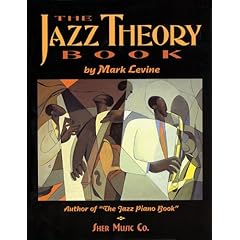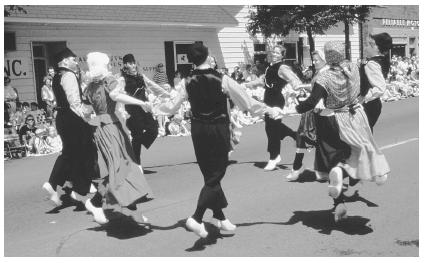I worked my way through four chapters of my new Piano Jazz book yesterday. It came in the mail along with two other books (Jazz Theory and Jazz History books).
I have been glancing through books that supposedly teach Jazz for years and have never found one that hit me as useful. Until this book. Not sure if it’s the approach this writer uses or my receptiveness. I think it’s probably a bit of both. But maybe more Levine’s approach. Which is very coherent from the getgo.
I’m not really interested in performing Jazz. I would just like to be understand a bit more about it and get some in my fingers. Last year I bought three fake books. These books are standard for young Jazz musicians. You see them at gigs, even. They are full of Jazz tunes with nice Jazz changes in them. Last year I surprised myself by sitting down and playing through these books. I was prepping for a meeting with another late bloomer. Vic the sax player was in love with Jazz and willing to come to my house and “jam.” I wanted to be able to hold my own when we improvved the music he likes.
Even without the Levine approach, I found it easy to lay down the changes and improv with Vic. If he promised to play sax on a gig for me I promised to do a bebop tune on it. He was interested. We rehearsed several times. Then he got a gig in Wisconsin (a day gig) and moved away. O well.
I remember this brush with Jazz yesterday when I was studying Levine’s ideas about Jazz harmony on the piano. At the end of the chapter, Levine suggests that you tranpose the patterns into all keys. And he gives a list of tunes (found in those fake books I bought last year) that specifically apply his concepts. I played through all this yesterday and found it pretty easy.
One of his insights is to take a basic chord pattern (ii7 V I) I have known most of my improvising life and showing how you can see most chord changes through the prism of this simple pattern. It hit me immediately.
I am hoping that his book with continue to make sense to me.
I also received his theory book in the mail.

He uses the same logic in this book as his piano book. In other words the chapters are corallary but he has rewritten it in more general terms for any musician not just pianists.
Both of these titles were in footnotes in Rob Hodson’s book, “Interaction, Improvisation, and Interplay in Jazz.”

I am reading this book. The author goes to my church and teaches at the local college. I plan to invite him out for coffee to ask him some questions about his book and Jazz in general.





























